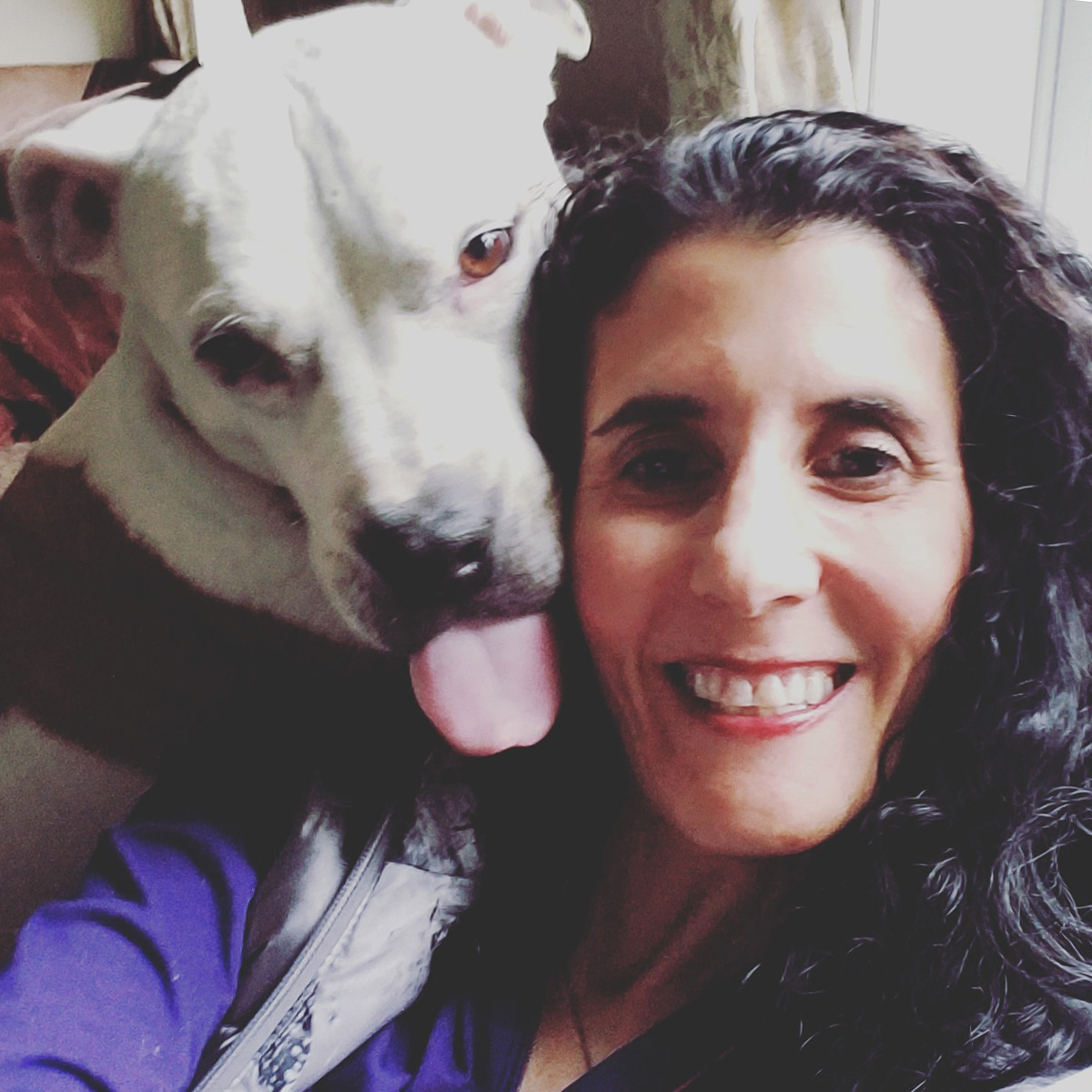
Why Is Your Dog Coughing, and When Should You Go to the Vet?
Key takeaways:
Several conditions can cause coughing in dogs, though some are more common than others.
If your dog is coughing, take them to the veterinarian to rule out serious or highly infectious health conditions.
Your vet will be able to help diagnose and prescribe a treatment plan for a coughing pup.
Table of contents

Dogs make many sounds, and owners get used to the occasional snort, sneeze, howl, or grunt. Still, as pet parents, we tend to worry whenever our pet might be feeling under the weather. So it’s only natural to take note when your dog coughs.
Like humans, all dogs cough from time to time. Coughing is the body’s natural way of protecting the respiratory system. However, sometimes coughing is a sign of a more serious health condition.
Why is my dog hacking and coughing so much?
All dogs cough periodically. They may cough simply to clear their throats. Dogs navigate the world with their noses and mouths. So it’s easy for dirt, grass, or unwanted materials to enter their nose or throat and cause irritation — and then coughing.
Save on the top 10 pet medications
Save big on common pet medications like Fluoxetine and Levetiracetam at your local pharmacy.

GoodRx is NOT insurance. GoodRx Health information and resources are reviewed by our editorial staff with medical and healthcare policy and pricing experience. See our editorial policy for more detail. We also provide access to services offered by GoodRx and our partners when we think these services might be useful to our visitors. We may receive compensation when a user decides to leverage these services, but making them available does not influence the medical content our editorial staff provides.
Several conditions, ranging from minor to life-threatening, can cause coughing in dogs. Here are a few common conditions that cause dogs to cough.
1. Canine influenza
Commonly known as dog flu, this condition is similar to the human flu in that it is a highly contagious respiratory virus. However, the dog flu is caused by a different virus than the flu humans get. That means the dog flu is not spread to humans from dogs or vice versa. But the dog flu does cause coughing and can be a serious condition for your pup.
2. Foreign objects in the throat
If your furry friend gets some type of object stuck in their throat, they will naturally cough to remove it. If you notice your dog coughing, a good place to start is by checking their throat to see if anything has become lodged there.
3. Environmental allergens
Allergens are substances such as dust, pollen, cigarette smoke, or anything else in the environment that your dog’s immune system perceives as an invader and overreacts to. For example, if your dog is sensitive to dust or certain ingredients in their food, their immune system may react as if it were being attacked by a foreign virus or bacteria. This can lead to coughing, similar to in humans.
4. Pneumonia
Pneumonia involves inflammation in the airways in a dog’s lungs. Pneumonia in dogs is usually caused by a bacterial infection or as a complication of a viral infection such as dog flu. It can also be caused by your dog accidentally inhaling vomit or regurgitation into the lungs.
5. Heart disease
This is one of the most common reasons for a dog to have a cough that does not clear up within a few days. Heart disease prevents the heart from pumping blood effectively throughout your dog’s body. Dogs who have heart disease will usually display other common heart disease symptoms in addition to a cough.
Read more like this
Explore these related articles, suggested for readers like you.
6. Tracheal collapse
Tracheal collapse (tracheal chondromalacia) is a chronic, progressive condition that causes a dog’s trachea (windpipe) to become soft and flatten out, restricting the dog’s airway. This condition is most commonly seen in small and toy dog breeds, such as Chihuahuas, Pomeranians, poodles, Yorkshire terriers, and pugs.
7. Kennel cough
Kennel cough will often present as a persistent, nagging cough in an otherwise healthy dog. A dry, hacking, or “honking” cough is usually the telltale sign. Your dog may also have coughing spasms or coughing fits.
Other kennel cough symptoms may include:
Sneezing
Lethargy
Low fever
What are the various types of dog coughs?
It’s a good idea to pay attention to the type of cough your dog has. You can also help your dog and your vet by observing the frequency of the cough and when it occurs. For example, do you notice your pooch coughing more at nighttime? Do they tend to cough when lying down in a certain position? Does exercise aggravate your dog’s cough?
Different types of canine coughs and the sounds they make are associated with different health issues. That’s why you want to pay close attention and take note of the following types of coughs you might hear.
Hacking cough
A dry, hacking cough can sound like a dog is trying to dislodge something from their throat or mouth. A raspy-sounding, hacking cough can be a symptom of kennel cough, a contagious upper respiratory illness that dogs often get from places where many dogs congregate.
Honking cough
A deep, dry, honking cough that sounds like a goose honk can be a symptom of kennel cough, a catch-all term for a disease that can be caused by a number of bacteria or viruses. A goose-honk sound can also be a hallmark sign of tracheal collapse.
Wet cough
A wet, phlegmy cough that sounds moist could indicate dog flu or pneumonia. It could also indicate congestive heart failure. If it sounds like your dog is gargling or coughing up phlegm, this suggests an issue in the dog’s lower airway (or lungs). If you hear this cough, it is best to seek medical attention right away.
Gagging cough
A high-pitched cough that sounds like the dog is gagging can be a symptom of a sore throat or another upper airway irritation or block.
Coughing at night
A cough that occurs only at night or when your dog is sleeping can suggest a potentially serious underlying health condition. Be sure to mention to your vet if your dog’s cough occurs only at night or worsens when they are sleeping.
When should you bring your dog to a vet?
While a cough every now and then is normal, a persistent cough is not. Some of the health issues that cause dogs to cough are very serious. Others, while easily treatable, can become serious if left untreated.
Only your veterinarian can diagnose your dog’s condition and start the right treatment plan. If your dog is coughing, you should make an appointment with the vet. When you call their office, be sure to mention if:
The cough has become worse.
Your dog has lost their appetite.
Your dog is lethargic.
They have a fever.
Your dog has other health problems.
How can you treat your dog’s cough?
Before treating your dog, your vet will need to thoroughly examine them to diagnose the cause of the cough. A vet will make a diagnosis based on a combination of:
Clinical signs and symptoms
A medical history
A physical exam
The vet will likely ask you several questions, such as:
What does the cough sound like?
When does the cough occur? (At night? After exercising? When your dog is lying down?)
Is your dog up to date on all their shots and heartworm preventative?
Where has your dog been lately? (A boarding facility or doggy daycare? On a family vacation?)
Your vet will likely listen to your dog’s heart and lungs. They may also run bloodwork to identify possible infections. If necessary, the vet will take X-rays of your pup’s neck and chest. Once they determine the cause of your dog’s cough, they will discuss the best treatment plan.
Your veterinarian may prescribe cough suppressants to make your dog more comfortable. Depending on the cause of your dog’s cough, they may also recommend antibiotics and other medications or treatments.
What are some home remedies for your dog’s cough?
You should make sure your dog has plenty of fresh water. They should have a quiet, warm, draft-free area in which to rest and recover.
You can also put a humidifier in the area where your dog rests. The steam will moisten the air your dog breathes. This may relieve some of the irritation in their respiratory tract. If you are taking a hot shower, use the opportunity to give your pooch some steam therapy. You can let them stay in the closed bathroom — but not in the shower — with you.
Try loosening your dog’s collar or using a harness for walks while they are coughing. Otherwise, pulling on a collar may irritate the neck and windpipe.
The bottom line
Dogs cough for many reasons ranging from simple throat-clearing to a life-threatening illness. There are many types of dog coughs and even more possible causes. The best thing you can do is call your veterinarian as soon as you notice your dog has a persistent cough. Most conditions that cause dogs to cough are treatable, so the sooner you get your canine companion to the vet, the better the prognosis.
Why trust our experts?



References
American College of Veterinary Surgeons. (n.d.). Tracheal collapse.
American Kennel Club. (n.d.). Toy group.
American Kennel Club. (2023). Kennel cough in dogs: Causes, symptoms, & treatment.
American Lung Association. (2024). Learn about cough.
American Veterinary Medical Association. (n.d.). Canine influenza.
Barnes, C., et al. (n.d.). Testing for cough. VCA Animal Hospitals.
Brooks, W. (2022). Kennel cough in dogs. Veterinary Partner.
Centers for Disease Control and Prevention. (2018). Key facts about canine influenza (dog flu).
Johnson, L. (2013). Why is this dog coughing? World Small Animal Veterinary Association Congress Proceedings.
Kuehn, N. F. (2018). Pneumonia in dogs. Merck Veterinary Manual.
Kumrow, K. J., et al. (2012). Canine chronic bronchitis: A review and update. Today’s Veterinary Practice.
Maharaj, N. (2023). Collapsing trachea: Indicators and treatment. American Kennel Club.
Morris Animal Foundation. (2022). 5 common signs of heart disease in dogs.
Sherding, R. (2001). Diagnosis and management of bacterial pneumonia. World Small Animal Veterinary Association Congress Proceedings.
Vetinfo. (n.d.). Dog coughs at night.




























